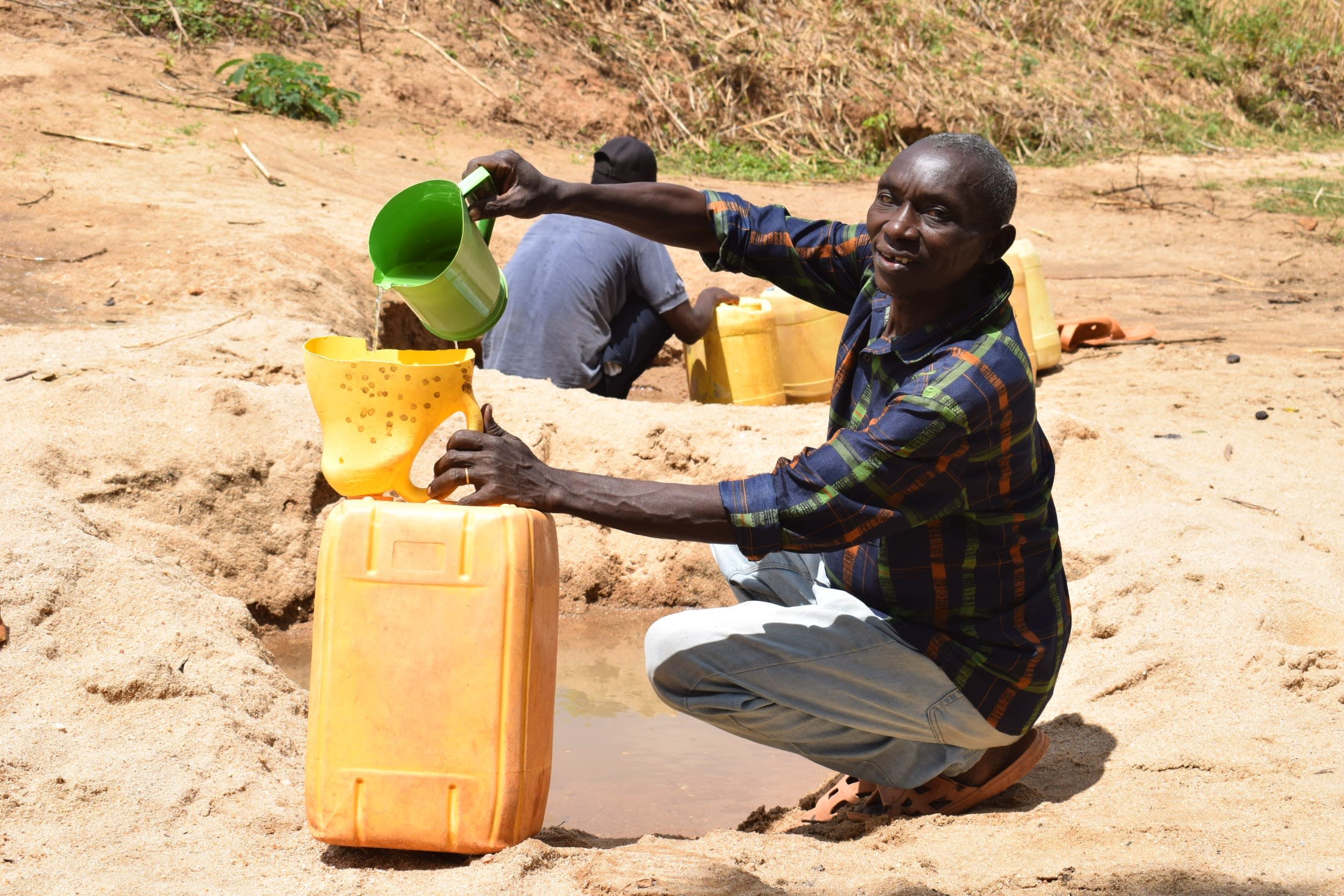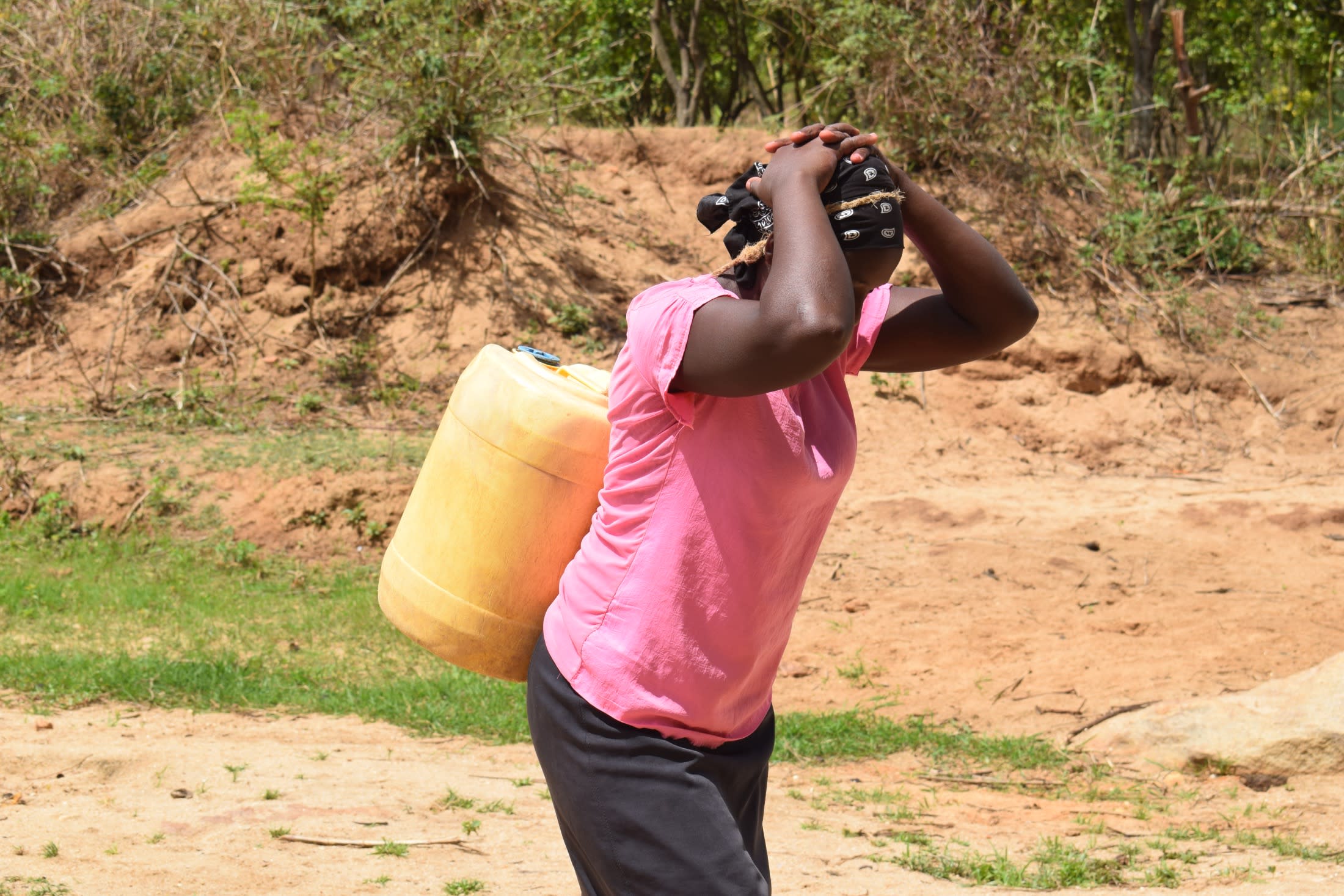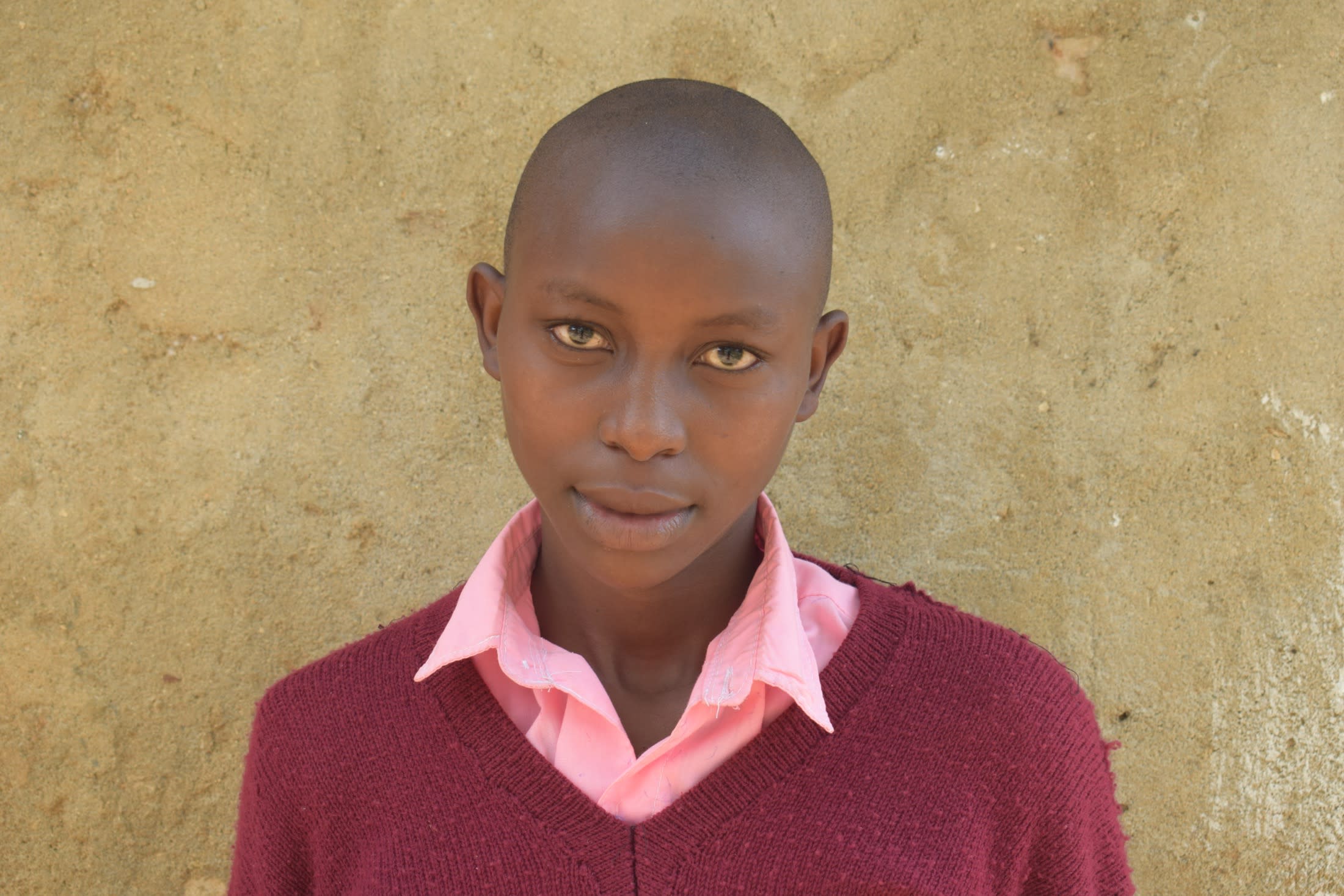Nduumoni's large population mostly depends on farming to survive. With water being so vital, it is understandable that those who live long distances from the two sand dam and shallow well systems previously installed by The Water Project in Nduumoni feel left behind.
Before the systems were installed in 2020 and 2021, the majority of community members suffered from water-related illnesses and struggled to hang on to hope for their futures. But since the water points were built, life has improved for most.

However, those community members who live on the outskirts of the village, too far from the current water sources, are still suffering. Forced to start their long journey to collect water by 6am each day, their time and energy are wasted, leaving them too exhausted to do anything else. Their only other option is to resort to searching for water in local scoop holes of sandy riverbeds, leaving them exposed to contamination and illness.
''Now the two sand dams available cater to some members who are near the projects," said 32-year-old farmer Virginia Kimanthi shown carrying water below.

"Before we started the first sand dam, our main aim and goal were to reach many community members and also reduce the distance taken to the river. Now, some members still walk long to the sand dams, hence we've had the urge to put up another sand [dam] hopefully to serve a bigger percentage of the community."
"The distance from my home to the existing sand dam is still a challenge to me. It is still hard for me to come back from school and rush for water in the dam," said 15-year-old Mbinya K (shown below).

"If I would get a dam existing near my home, that would be of very great help." If Mbinya could quickly collect water, she would have more time to do other things like study, help her family with chores, and spend time with her friends.
Mbinya and her fellow community members in Nduumoni need an additional sand dam and shallow well so everyone can efficiently fetch safe water that allows them the freedom to focus on the most important things and dream about the future.
Reliable Water for Nduumoni
Our main entry point into this community has been the Wathana Self-Help Group, which comprises households working together to address water and food scarcity in their region. These members will be our hands and feet in constructing water projects and spreading the message of good hygiene and sanitation to everyone.
Hand-Dug Well
This particular hand-dug well will be built adjacent to a sand dam project, which will supply clean drinking water once it rains. We have provided the group with the tools needed for excavation. With the guidance of our artisans and mechanics, the excavated well will be cased, sealed with a well pad, and then finished with a new AfriDev pump.
Excavation takes a month or more on average, depending on the nature of the rock beneath. Construction of the well lining and installation of the pump takes 12 days maximum. The well will be lined with a concrete wall including perforations so that once it rains, water will filter in from the sand dam.
This well will bring clean water closer to families.
New Knowledge
These community members currently do their best to practice good hygiene and sanitation, but their severe lack of water has significantly hindered reaching their fullest potential.
We will hold hygiene and sanitation training sessions with the Wathana Self-Help Group and other community members to teach essential hygiene practices and daily habits to establish at the personal, household, and community levels. This training will help to ensure that participants have the knowledge they need to make the most out of their new water point as soon as the water is flowing.
One of the most important topics we plan to cover is handling, storage, and water treatment. Having a clean water source will be extremely helpful, but it is useless if water gets contaminated when it is consumed. We will also emphasize the importance of handwashing.
The community and we firmly believe that all of these components will work together to improve living standards here, which will help to unlock the potential for these community members to live better, healthier lives.
We typically work with self-help groups for 3 to 5 years on multiple water projects. We will conduct follow-up visits and refresher training during this period and remain in contact with the group after all of the projects are completed to support their efforts to improve sanitation and hygiene.

 Protected Dug Well
Protected Dug Well
 Rehabilitation Project
Rehabilitation Project










 Water from this point will shorten the long treks I had in the search for water. I hope to start venturing into farming to help boost my food and income security," said 45-year-old farmer Anna Klio.
Water from this point will shorten the long treks I had in the search for water. I hope to start venturing into farming to help boost my food and income security," said 45-year-old farmer Anna Klio. "Now, I will have clean water for drinking, washing clothes, and cooking. I will no longer waste time fetching water. I really missed playing and visiting my relatives, which I will now achieve because the work is now easy," said nine-year-old Wambua K.
"Now, I will have clean water for drinking, washing clothes, and cooking. I will no longer waste time fetching water. I really missed playing and visiting my relatives, which I will now achieve because the work is now easy," said nine-year-old Wambua K.

















